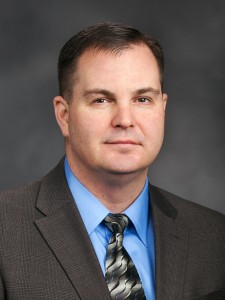This post originally appeared on the leadership blog of the Senate Majority Coalition Caucus, Exit 105.
Fifteen years ago, home care workers and others like them were the last great frontier for public-employee-union organizing efforts nationwide. They didn’t look like state employees, they didn’t work like state employees, but they collected state paychecks and there were a lot of them. That made them a target.
Today this successful organizing drive is creating an enormous problem for Washington, and it will come to a head when the state’s new collective bargaining agreements come up for ratification in this year’s budget. Nearly 50,000 of these “partial public employees” are covered by union contracts in this state, most of them represented by the politically powerful Service Employees International Union. Last year the U.S. Supreme Court ruled in an Illinois case that such workers cannot be required to pay union dues or fees. But the state so far has taken only weak steps to comply – and if it isn’t careful it could find itself on the hook for tens of millions of dollars.
I have been concerned ever since the court delivered its well-reasoned decision in Harris v. Quinn. I have twice asked the state attorney general’s office for an opinion about the way this case applies to Washington state, but I have been rebuffed because it is a matter of pending litigation. Already a small group of home care workers is suing for a refund of their union dues and fees. Legal questions often trip us up in the Legislature, but I think we should ask whether this arrangement was fair to the workers in the first place.
These workers are not state employees in any traditional sense. Some two-thirds of the state’s 33,000 home care aides, for instance, work for relatives in their own homes – the elderly, the infirm, the incapacitated. These workers do an important job. Yet they are a vulnerable population themselves.
They survive on modest state stipends. They have no common workplace, they are isolated; there is no water cooler where they can compare notes. Odds are most don’t even know that a union representation election took place years ago. Each pays, on average, $470 a year in union dues – that’s $20 million in income for SEIU.
Another 12,000 such workers provide childcare – that means another $8 million for SEIU; a few thousand others are covered by other contracts. Certainly they ought to be able to join a union if they choose. They also ought to be given that choice.
When the Inslee Administration bargained with the unions last fall, it got partway there – the contracts dropped closed-shop requirements for these workers. But the home care contract curiously required workers to notify the union if they wished to stop paying. This weak “opt-out” provision is constitutionally questionable – a case is on the way to the U.S. Supreme Court. And it leaves the state vulnerable to a class action lawsuit if the state continues to deduct money from paychecks without workers’ consent.
I am just as concerned with another provision of the home care contract – for the first time it establishes a modest retirement benefit. Twenty-three cents an hour isn’t much, but we can expect pressure to sweeten it over time, and as the state offers new benefits it runs the risk these workers will be reclassified as full-fledged state employees. King County learned this lesson the hard way after contracted public defenders filed suit for full retroactive retirement benefits; today the county is reeling from the cost. Imagine the impact 33,000 new public employees would have on the state.
Early this session we saw debate in committee on bills to address these issues; we can be sure argument will resume when we consider the budget. If the Legislature doesn’t resolve them, the courts will – and that should be enough to worry us all.
Sen. John Braun, R-Centralia, is deputy leader of the Senate Majority Coalition Caucus.











